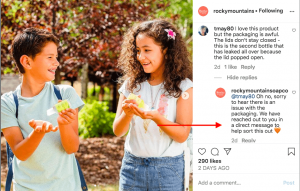Did you know that 50 percent of local search engine queries result in a store visit within one day?
Local search engine optimization, or SEO, can provide significant new opportunities for businesses that rely on local customers and word of mouth (looking at you, small businesses).
But it can be difficult to discern what practices are actually working to help with your local standing and what’s just toiling for no harvest. We’ll cover just how valuable local SEO is and what you can do to help yours.
What Is Local SEO?
Most marketers understand that search engine optimization is an essential tool when it comes to getting a business found online. But the scale of the internet is overwhelming, especially if you’re looking to market to customers in your local area.
That’s where local SEO plays in. Local search helps customers find nearby businesses that can meet their needs or solve their problems.
For example, if you were to search for a “dentist near me” or “dentist in [specific area],” you’d expect to receive results of dental offices specific to the local area you indicated, right?
Local SEO has proven to be incredibly valuable to users. Google has even advanced to the point where it doesn’t even need to be told to search locally. It will offer local results first to meet user intent.
The Importance of Local Search
Reaching your local audience is important for establishing your business in its “home town.” Thirty five percent of all search traffic is local. Translation: a decent amount of your business is going to be sourced straight from your community.
Local SEO and marketing provides a wide array of advantages, but here are just a few:
- You’ll become more recognizable and familiar in your local community.
- You’ll get word of mouth rolling.
- Refining your messaging becomes easier.
- You’ll be able to develop brand trust.
- Your local area is a safe testing ground for new marketing strategies.
10 Local Search Ranking Signals You Should Know
A ranking signal is a characteristic of a site that search engines consider when ranking it. While these characteristics are not officially provided by search engine companies like Google, there has been an extensive amount of research showing the value of these factors.
Let’s review the most important ranking signals you need to know for improving local SEO.
Google My Business
Your Google My Business page tells Google a lot of important information, including the categories your business operates in and photos of your products, your employees, and your location.
Bing Places for Business
Just like how Google My Business works, Bing Places for Business shares details with Bing in order to get your site ranking for the right searches.
Online Directories
With so many popular directories, like Yellowpages and Apple Maps, you have a lot of opportunities to claim your listings to ensure your business information is accurate.
Review Site Listings
Searchers use sites like Yelp and Angie’s List to hear more about your products or services, so it’s important to get listed so you’re found.
But don’t just leave reviews untouched. You can comment on both positive and negative ones to address customers directly. This shows Google your company is real.
NAP Consistency
Your name, address, and phone number (NAP) is going to be listed in so many different spots on the internet. Ensuring consistency makes Google rank you better because they want to deliver accurate information for searchers.
Social Media Listings
Twitter, LinkedIn, Facebook, and Instagram are among the most popular social media sites. By claiming each listing, you can ensure a consistent presence and direct social searchers to your site.
Domain Authority
From an SEO perspective, this is obvious. Your domain authority (DA) is a proprietary ranking score from Moz that suggests how well a site could potentially rank in search engine results pages (SERPs), so putting forth consistent effort to improve your score will have an impact on your local SEO.
Structured Data Markup
To put it simply, structured data formats are markup that is applied to text snippets, making the metadata and text enclosed within the XHTML tags more meaningful to computers. You can add structured data markups for local SEO components like hours, menu, website, phone number, and department information.
Consistent Optimized Content
Consistent content publication is key to driving SEO results. For your local ranking, you can create content using your primary keywords and your location. Keyword placement plays an important role here. Use your primary keywords and location naturally in your content and in your title and meta description.
Backlinks
Inbound links act as votes of confidence for you, so earning a diverse selection of high quality links from other reputable sources, as well as from local sites (community blogs, local news, etc.)
With these ranking signals in mind, you’re ready to start earning big local SEO wins.
10 Ways to Improve Your Local SEO Today
Consistently optimizing your strategies is a great way to stay ahead of the game.
Here are 10 great and easy to implement ways to improve your local search rankings today:
1. Own Your Google My Business Page.
This is probably the most essential piece to the local SEO puzzle. The Google My Business Page gives users all of the details necessary to get in contact with your company, provided you’ve filled it out properly.
Google itself finds it easier to recommend you when it “knows” more about you. To achieve this, make sure you are being thorough in taking ownership of your business’ online presence. Be sure to include:
- Name
- Address
- Phone number
- Hours of operation
- Website
- Photos of your location, products, etc
- Accurate, specific category listings
2. Optimize Your Webpages for Local Data.
Your About Page, Contact Page, and site content has to be optimized for search engines in order for your site to be successful. That’s just a given in general, but it also makes a difference in local searches as well.
Make sure your About and location pages are current and that the information isn’t duplicated across multiple webpages. You don’t want to confuse search engines who are looking to rank them.
3. Craft Detailed Social Profiles.
The more fleshed out and specific your social media profiles are, the more engaged your audience will be. Consumers crave context when it comes to businesses, so don’t deny them.
Local audiences will appreciate seeing that you’re within their area and will look to see if you’re active within the community, both online and off.
Monitor your social media pages and be sure to reply to questions and comments promptly.
4. Write Location-Specific Content.
Blogs are a great means of driving traffic and ranking on SERPs, but they can also help boost your local SEO.
Be sure to plan blogs about location-specific events, local topics, and other such articles into your content strategy. If you provide location-specific information in the titles and URL slugs, then you’ll be helping your local SEO value.
5. Earn Local Reviews.
Reviews won’t only help your SEO. This is how you’ll attract new customers. Word of mouth marketing is a great friend to marketing teams, as it validates and justifies a purchase before it even happens.
Positive reviews on Google and Yelp will let the search engine know that you’re seen as a valuable solution, so encourage them as often as you can. You can even put Yelp review badges or link your Google reviews to your site to showcase them in real time.
6. Respond to All Reviews.
This is almost as important as asking for them.
People value engagement and interactivity, especially when they’re voicing their thoughts. Whether positive or negative, respond to reviews in a timely manner. Make sure to personalize the message and be honest in them.
If someone has a complaint, be transparent about finding a solution for them to better their experience.
7. Get Listed on Online Directories.
Directories, like YP.com, Yelp, and Bing, allow you to add your business to their listings. The more directories you’re in, the more referral links and mentions search engines will take note of.
These links and mentions boost your rankings on SERPs, which is excellent for your SEO goals. You can use Moz’s local listings tool to help optimize your information for these directories.
8. Make a Facebook Business Page.
Facebook is a sort of directory in its own right, but there are more advantages to it than just a listing.
Many consumers use Facebook as a search engine today, vetting business and opportunities via the social platform. If your company doesn’t have any sort of presence on it, then you may as well not exist.
Create a business page with accurate contact information and update it regularly. Google will notice that you’re in a specific area and boost you in local searches. If you’re looking to really get some attention, include photos, reviews, and details about your business for customers to engage with.
9. Keep Contact Info Consistent.
This may sound kind of basic and easy, but you’d be surprised by how much information is overlooked or irregularly updated.
Be consistent with your NAP (name, address, phone number) across your webpages, listings, reviews, social media, and anywhere else your business information is listed.
This way, no matter how a customer finds you, they’ll be given accurate information.
10. Develop a Mobile-Friendly Website.
It’s absolutely imperative that you make your business mobile friendly. Most, if not all, of your customers use a mobile device to search and learn about… well, everything.
If your website isn’t accessible by mobile means, then users will quickly move on to another company that is. The demand for convenience and accessibility isn’t going anywhere.
Develop and optimize your landing pages to be mobile friendly and easy to navigate for customers.
If you’re a brick-and-mortar store, local SEO is an important cog in the strategies that keep your business going. Once you start implementing these practices, you’ll watch your local search results improve and notice a different sort of engagement with your customers!
Digital & Social Articles on Business 2 Community
(83)





